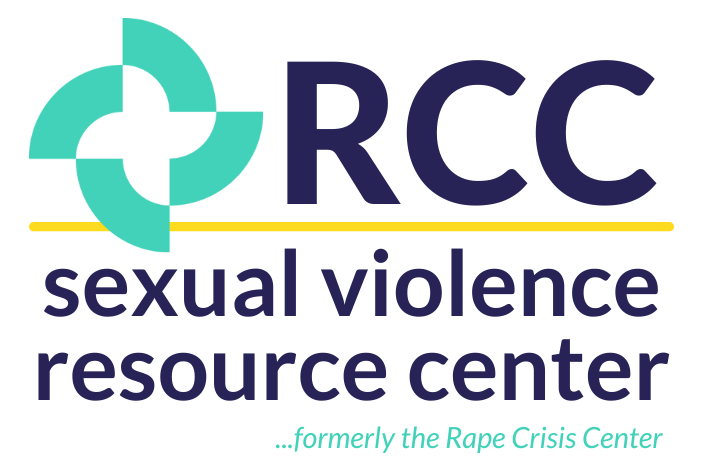FAQ
-
Sexual violence is an umbrella term defined as any sexual behavior that happens without a person’s consent. This can include, but is not limited to: Rape (statutory, marital, date), child molestation, incest, assault, unwanted groping/fondling, stalking, verbal or physical harassment, voyeurism, flashing, trafficking, etc. These are all acts in which sex is used as a tool of power, control, intimidation and violence.
-
At RCC, we are careful to not define anyone’s experience for them. What we can do is provide you with information to make an informed decision about what you experienced so that you can determine your own needs and the healing journey that is right for you.
Depending on who you are, it can feel either empowering or traumatizing (or anything in between) to assign a label to what you experienced. Regardless of what you or anyone may label it as -- if a sexual experience made you feel uncomfortable, powerless, ashamed and/or angry, we are here to support, empower, validate and listen to you. -
Absolutely! If you have ambivalent, confusing or negative feelings about a sexual encounter, or feel that something just isn’t right - it can be incredibly helpful to talk with an experienced advocate or therapist. Even if you end up deciding that you were not assaulted, it can still bring up lots of complicated feelings. Navigating these feelings with a trusted and confidential advocate is always available to you – you don’t have to go through it alone!
-
Yes. Our services are open to any person of any gender or sexual identity who has experienced or been affected by an assault.
-
No. At this time RCC services are only designed to support victims and their support people.
-
All services at the RCC are confidential. We may be required to make reports to law enforcement about disclosures of suicidal or homicidal intent.
-
RCC advocates carry out a special role different from law enforcement and medical personnel. Their role is to offer the survivor support and information about the process, including the available options in an investigation or medical exam, and appropriate referrals. They will never meet with law enforcement or medical personnel without the survivor or the survivor’s express permission. They will never tell you what decisions to make. Their job is to support, affirm and offer resources for every step of a survivor’s healing journey.
-
All advocacy, support groups, and emotional support services are provided by the RCC at no charge. There may be fees associated with some educational offerings (trainings, Chimera Self-Defense, and Safer Bar).
-
Our youth services are available to Dane County youth ages 12-18. An RCC advocate can meet with you at RCC’s main office OR at your school OR virtually. You can schedule an appointment by calling our helpline (608-251-7273). Please ask your counselor if your school provides any additional services such as support groups.
-
Yes, it is technically illegal. Wisconsin’s law on child sexual assault is written to make any sexual intercourse and (depending on age) most sexual contact with a person under the age of 18 a crime (s.948). Depending on your age and your partner’s age, the crime could be prosecuted as either a felony or a misdemeanor. If both partners are under the age of 18, the law is written such that both partners could be prosecuted. Prosecution of these cases varies considerably throughout the state. You may still call our helpline if you want to talk about this, as long as you don’t give us your name, address, school, or other identifying information.
-
Sexual assault is a serious crime. If you choose to report your assault to law enforcement, the District Attorney’s office decides if there is enough evidence to bring charges against the assailant. If convicted, it is possible that the assailant could receive a jail or prison sentence. Contact the RCC if you would like to talk with an advocate about the possible outcomes of filing a police report.
-
Yes, click here to download.
